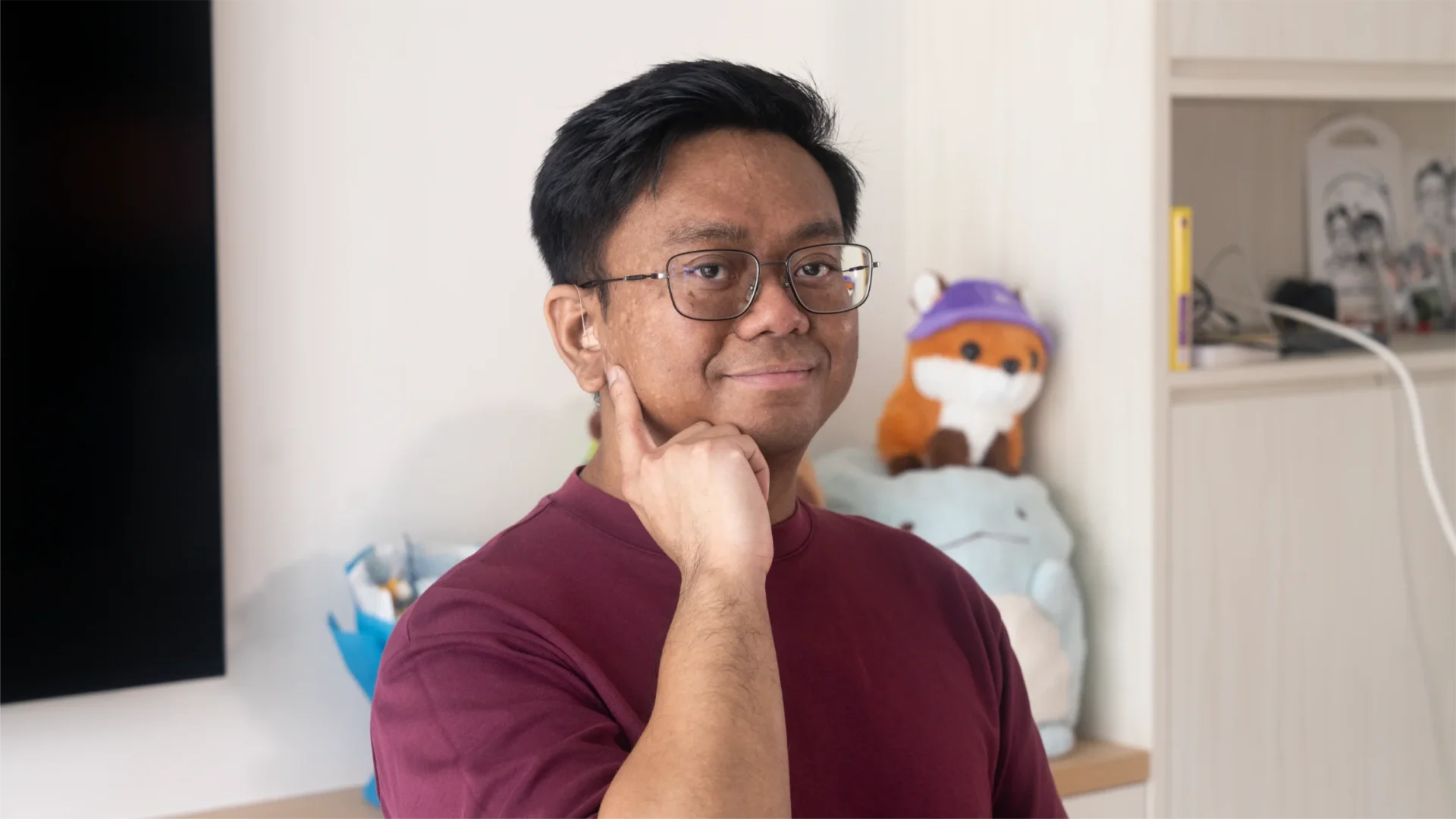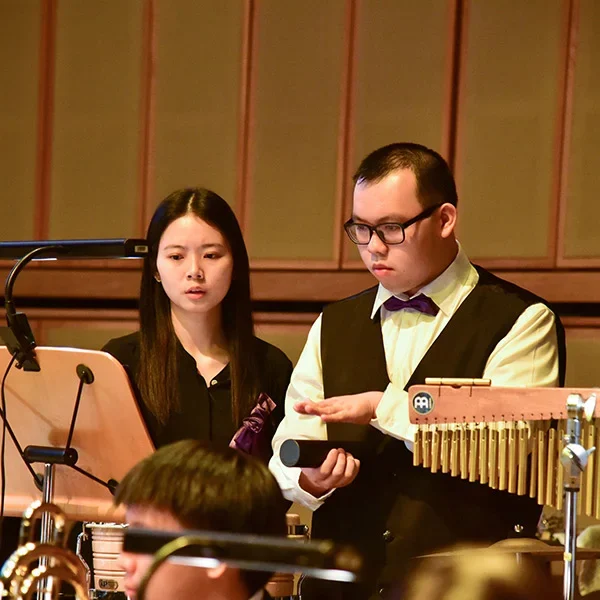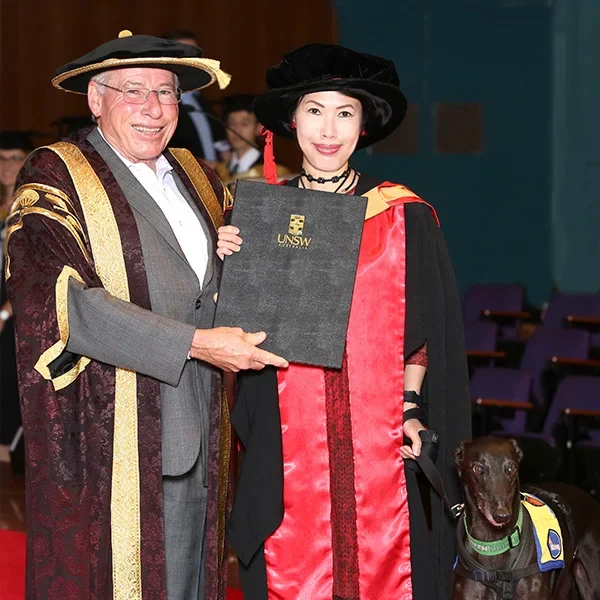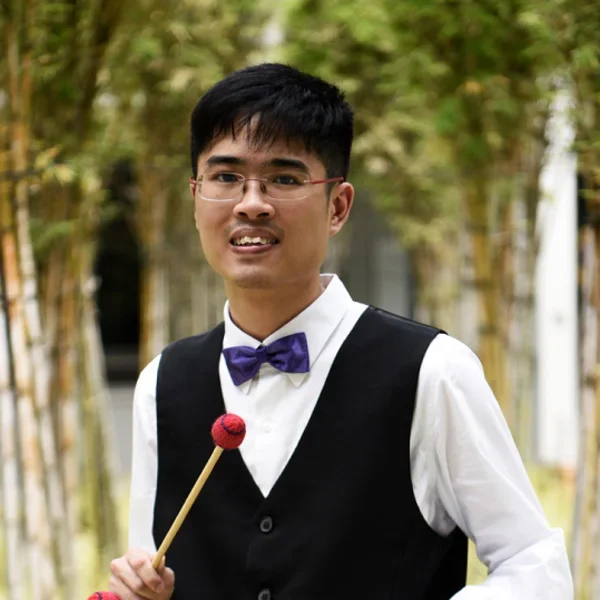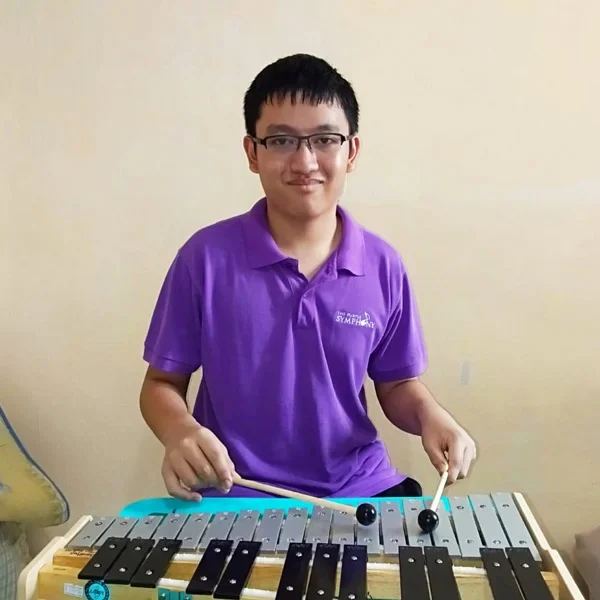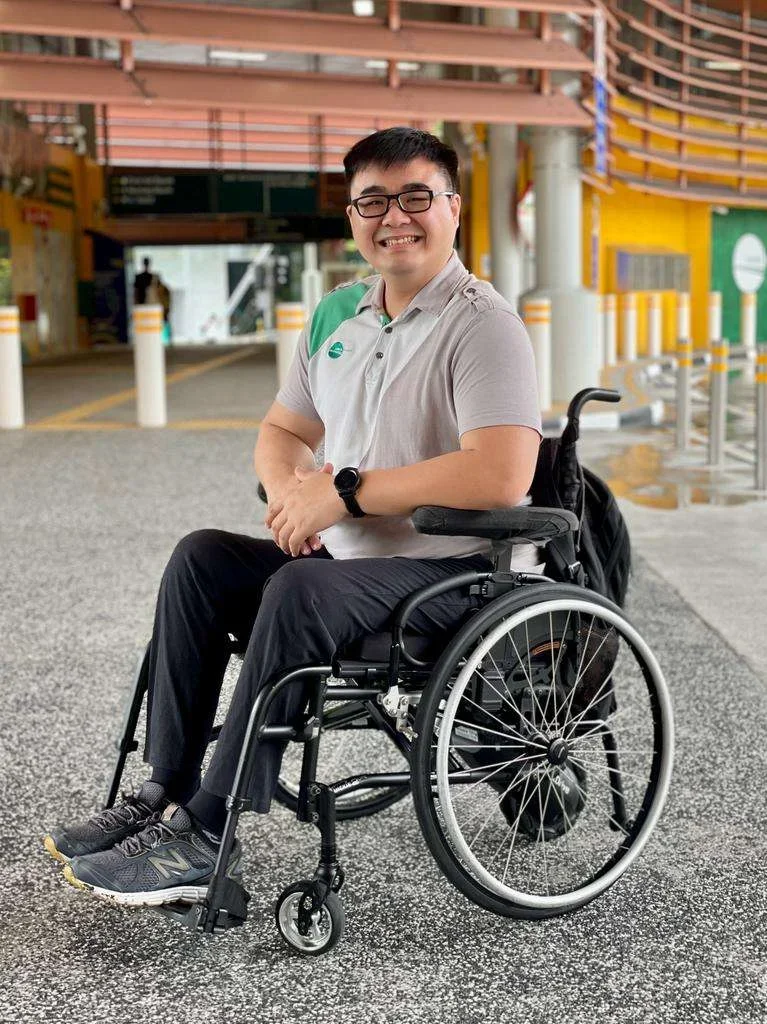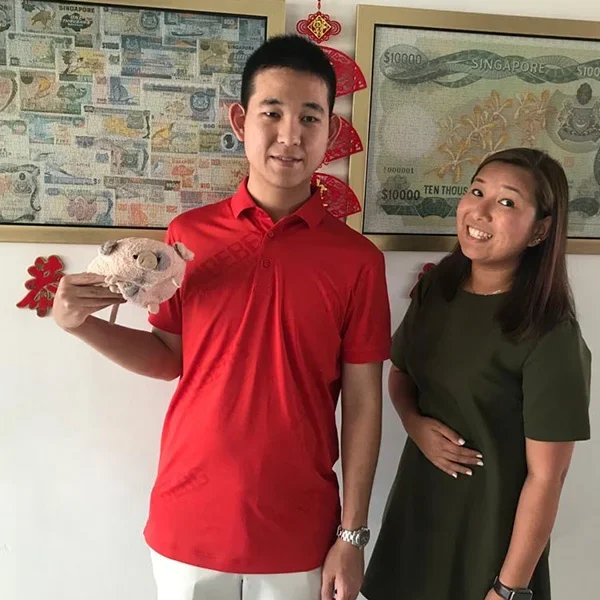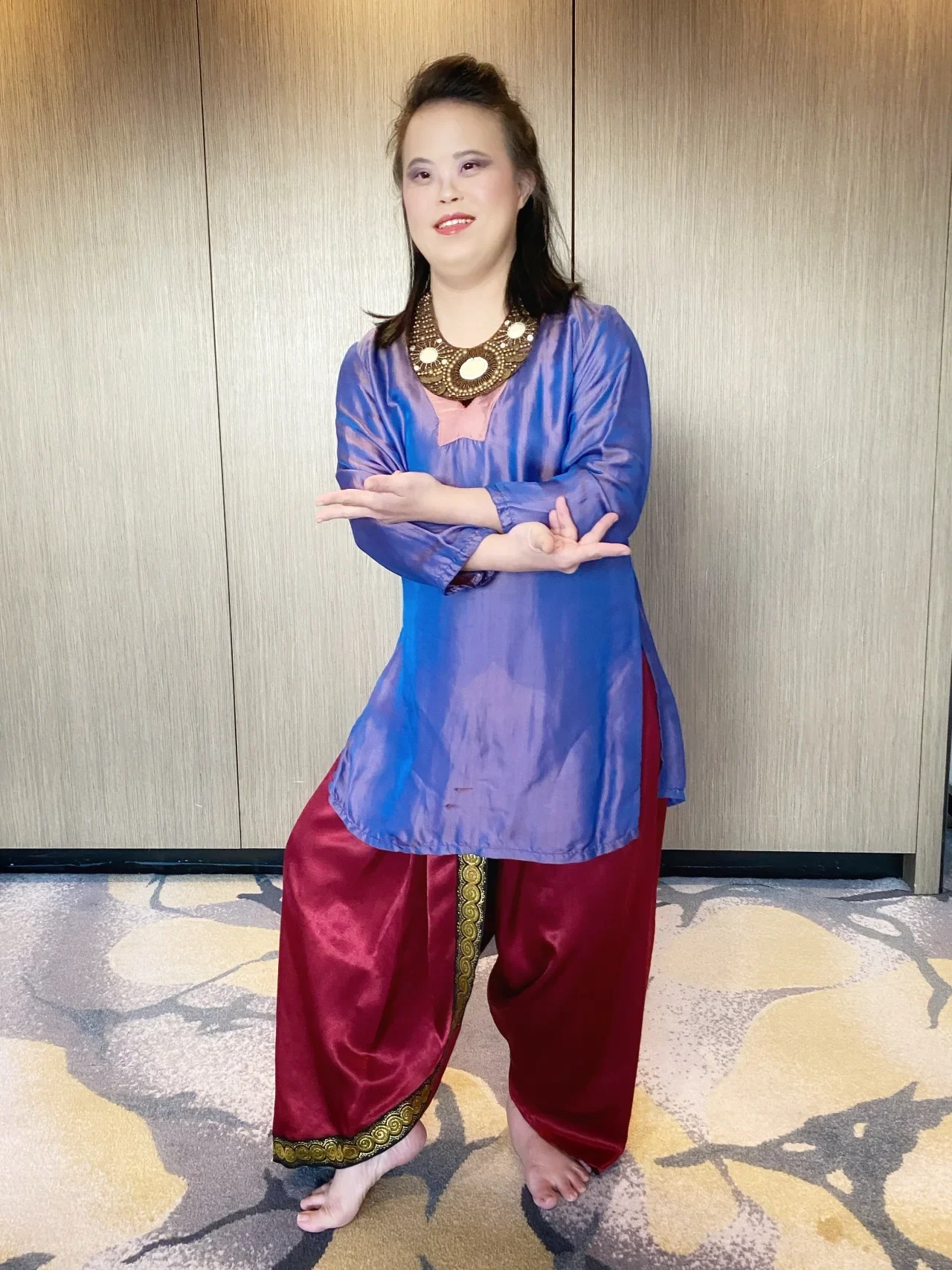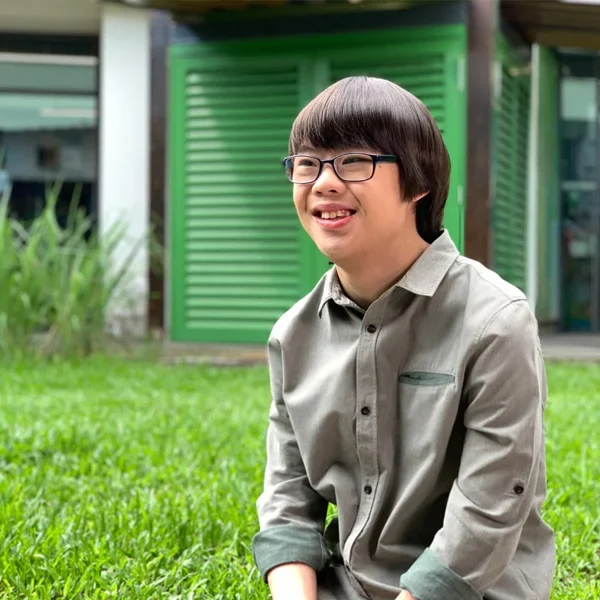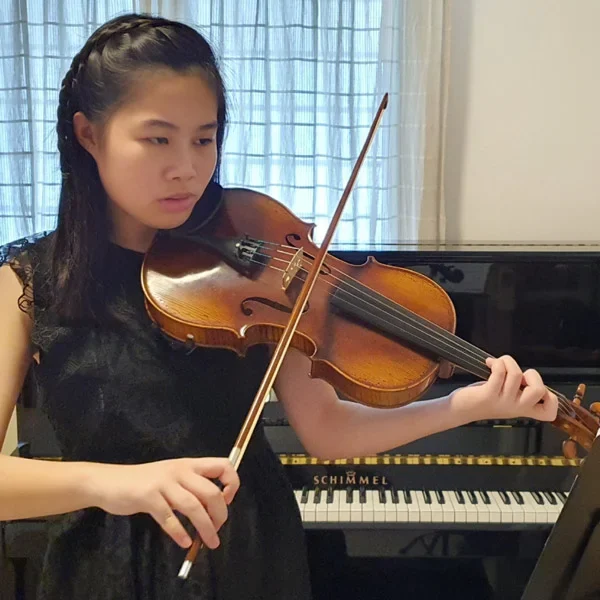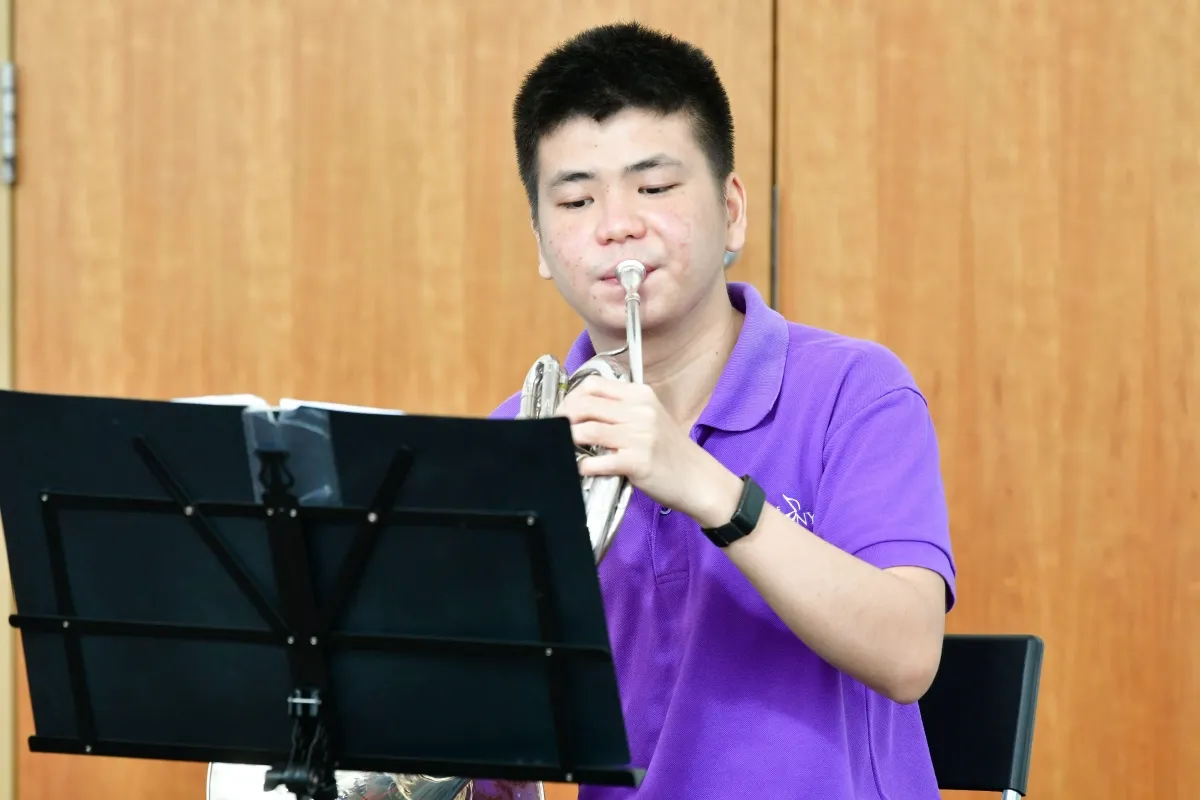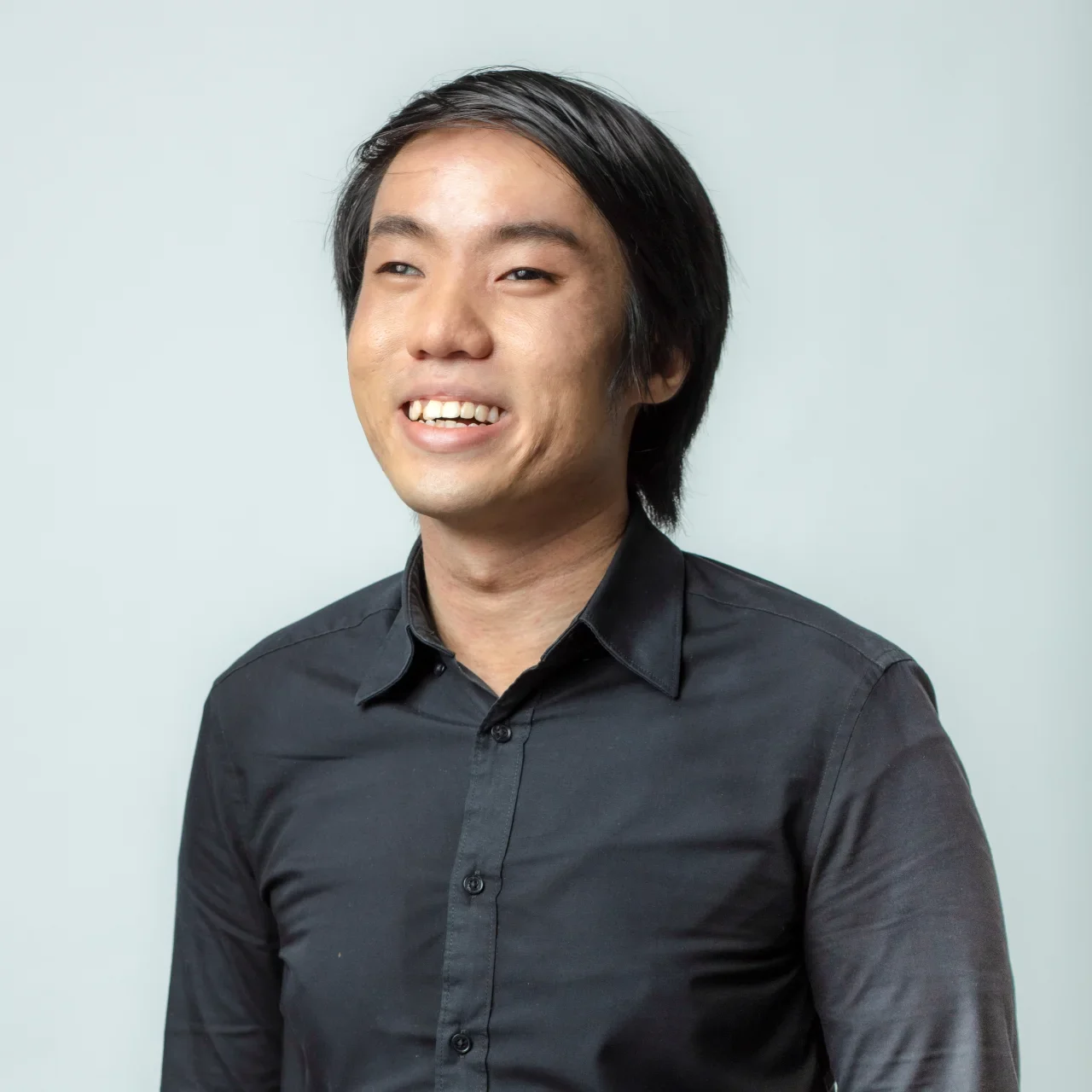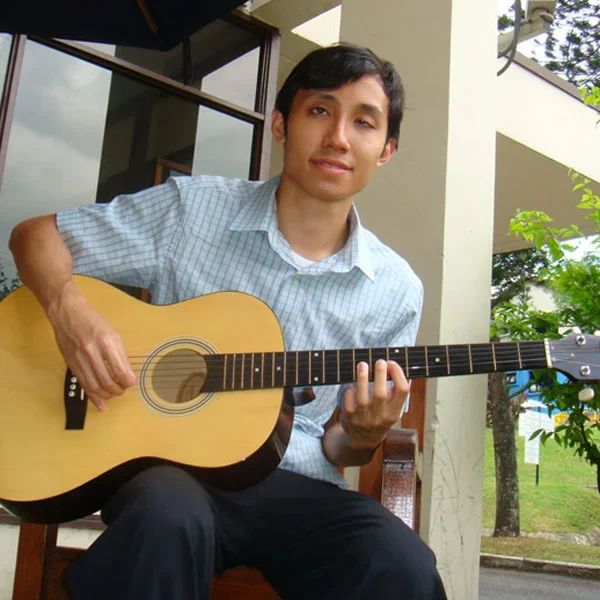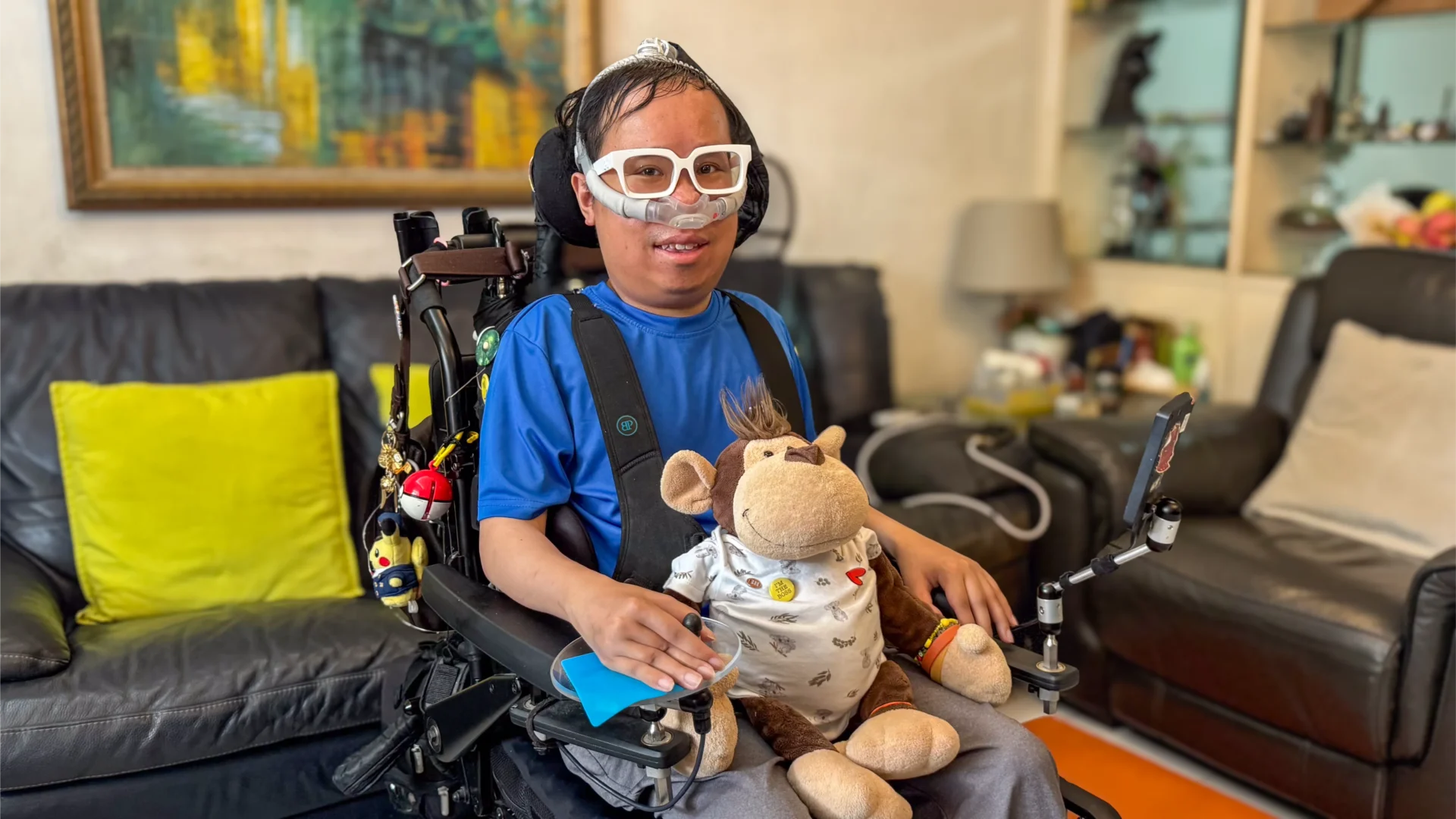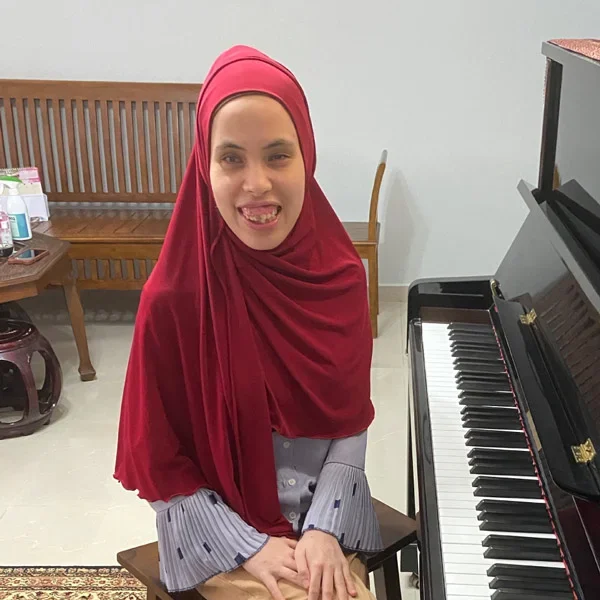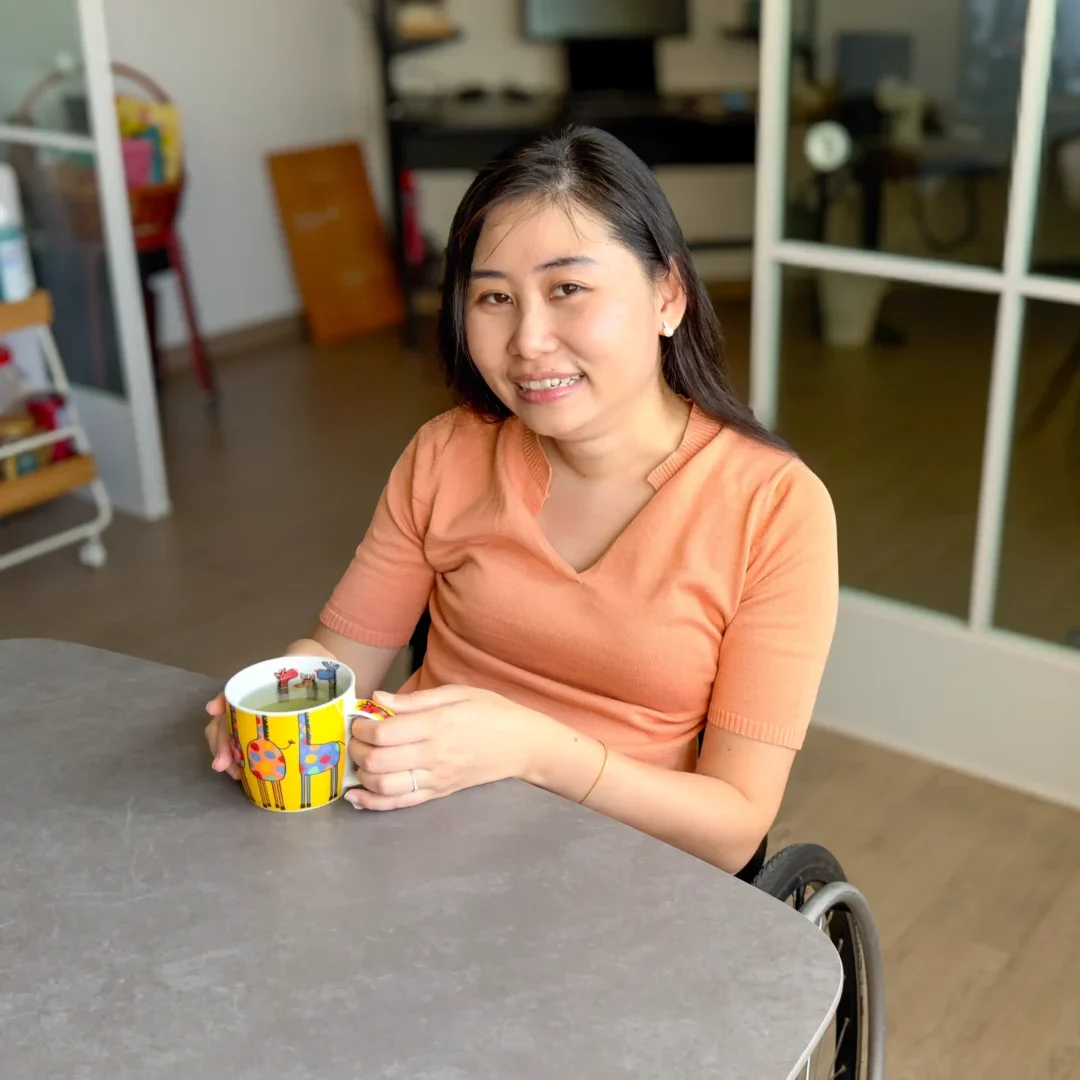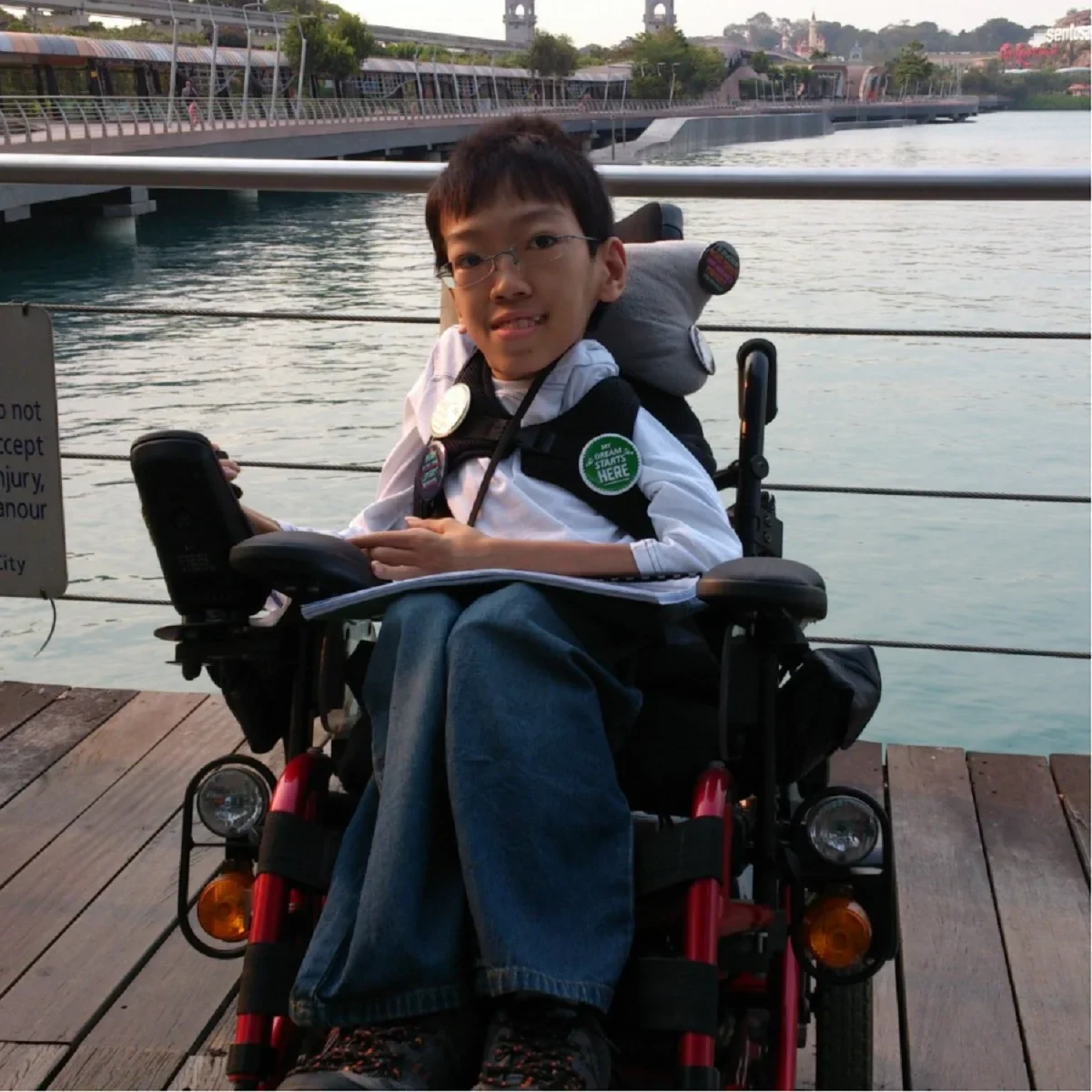Winston Wong
I Used to be Ashamed of My Hearing Aids
Now I Call Them My ‘$10,000 Earbuds’!
Can you tell us more about your ‘$10,000 Bluetooth earbuds’?
When I was in primary school, I used to be bullied a lot for my hearing aids. The children would grab them out of my ear and make me try to get them back.
This made me feel very ashamed about having to use my hearing aids.
Now that I’m much older, I’ve accepted my disability and also come to appreciate what my hearing aids can do for me. Obviously the normal function of a hearing aid amplifies sound in my environment and lets me hear things I otherwise wouldn’t be able to – without my hearing aids, if you tried shouting into my ear, I’ll only be able to hear a whisper.
But the newer models also allow me to connect to my smartphone via Bluetooth so I can do things like take phone calls, listen to music, or watch TikTok on my phone.
With an additional accessory I can also connect my hearing aids to my smart TV. This would be nice for gaming on the PS5 or Netflix and chill with the wife. But I personally find it very troublesome to use this accessory, so I stick to listening through the TV speakers.
Sometimes my wife complains that I turn up the volume too loud though… Whoops!
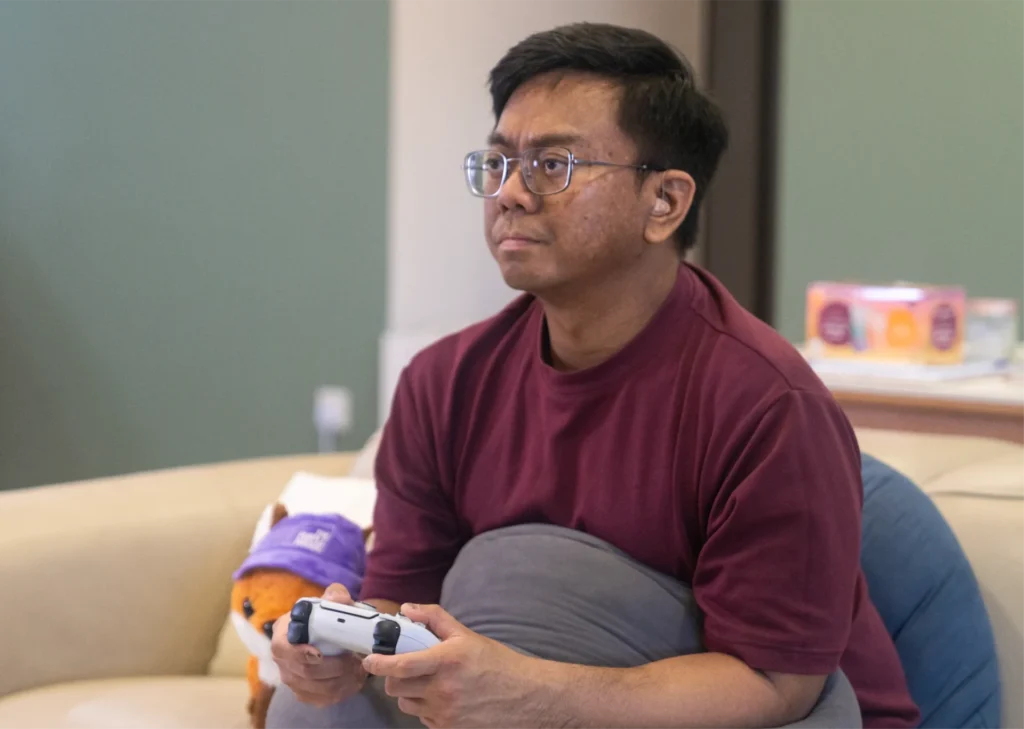
Did you know?
Children with disabilities are 1.5 to 2 times more likely to be bullied compared to children without a disability.
What is your proudest achievement?
As an adult, I realised my childhood experiences were partially caused by the other kids at school simply not understanding the conditions of people with disabilities like myself.
This has made me realise the importance of nurturing education and empathy in children starting from a young age. That’s one of the biggest things we can do to build a society that’s more accepting of persons with disabilities.
View this post on Instagram
Photo credit: Winston Wong Instagram
When I was at my previous workplace (Temasek Polytechnic), I decided to do something about this.
One day, I learned it was actually possible for students and staff to form student-led interest groups.
I eventually worked up the courage to make a proposal to my managers: to form a disability interest group for students within Temasek Polytechnic.
This led to the creation of TP SENvocates, a student-led co-curricular activity (CCA) group that focuses on advocating for disability causes.
View this post on Instagram
Photo credit: Winston Wong Instagram
I wanted to create the kind of school environment I wish I had growing up—one where students understand disabilities and stand up for each other.
We conducted training sessions where I would teach the student members how to interact with persons with disabilities. We focused a lot on how to be respectful, understanding when and how to offer help appropriately. SENvocates also frequently supports events and organisations related to disability causes, like The Purple Parade.
After 4 years of working in Temasek Polytechnic, I left to pursue new work opportunities. When I announced my departure to the SENvocate students, there definitely were a few tears shed that day.
But I’m very happy to know they’re still doing well without me. They now have over 100 members and I’m so proud of them.
How did you start on your journey advocating for disabilities?
When I was first awarded the SPD-APBF Scholarship for Persons with Disabilities to pursue my university studies, that was honestly the first time I met other people with disabilities. Maybe it was because I was still slightly immature, but in my head I always felt like I was the only person in the world with a disability.
Meeting the other scholarship recipients (who were all people with disabilities) made me realise I wasn’t alone. But I think more importantly, it made me realise how much more needs to be done within our community.
When we were being appointed with our scholarships during the award ceremony at SPD, each of us was asked to prepare a short speech. I decided to share a bit about my difficulties being bullied and ostracised in school.
My family, who were at the ceremony, started crying because they truly had no idea how much those experiences had affected me.
I think that was the moment that a seed was planted in my head. I realised how the small act of telling my story can really resonate with people. And maybe I could use this to make a difference and help the rest of society better understand what we people with disabilities go through.
Beyond Disabilities
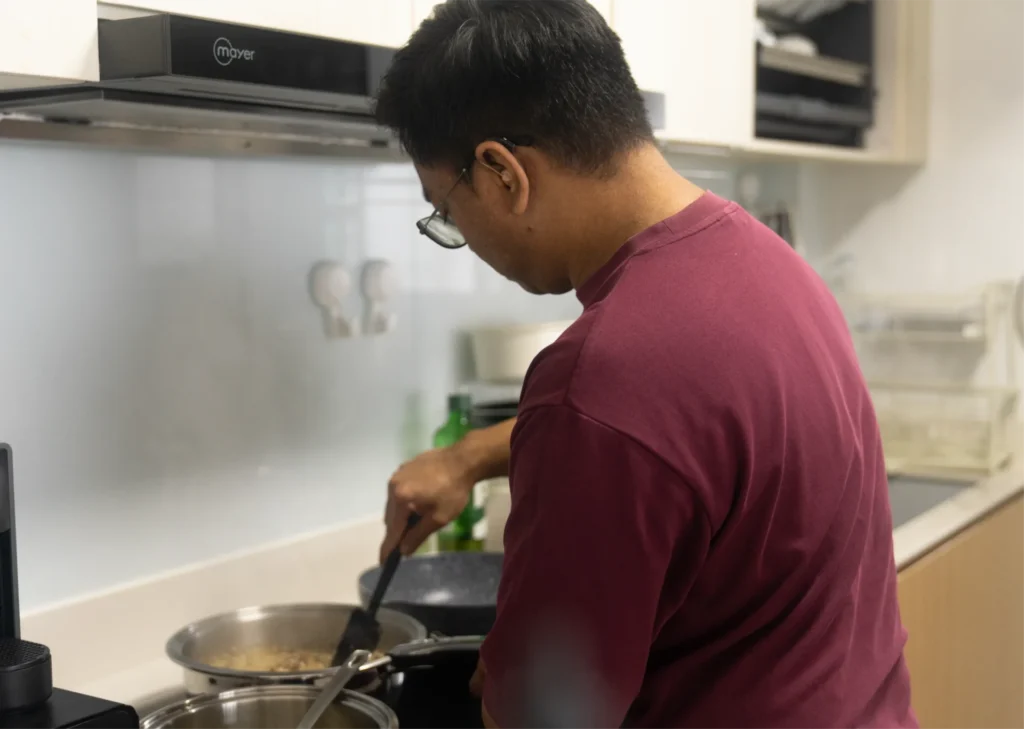

What do you love doing for the people in your life?
Now that I have my own place, I finally get to do things I wasn’t able to when I still stayed with my parents. My favourite is definitely cooking!
I went to an all boy’s secondary school, and the lessons for Home Economics where we’d learn sewing and cooking were considered too ‘girly’. I secretly enjoyed the lessons very much, but felt like I had to keep this to myself because I didn’t want to get made fun of by my classmates.
At home, my mother likes to have her kitchen kept in a very particular way. If I’d come in to try to cook anything, I’ll be ‘messing up’ her kitchen. So I really didn’t manage to explore this interest much when I was younger.
View this post on Instagram
Photo credit: Winston Wong Instagram

Photo credit: Photo by Krists Luhaers on Unsplash
Italian dishes are definitely some of my favourites!
My wife and I actually take turns cooking for each other. And I think one thing I appreciate about our relationship is that we can give each other constructive feedback about each other’s cooking.
I like my food a bit more flavourful. But she sometimes finds it too salty. So we always have a bit of back and forth feedback about how to make food that we both can enjoy.
How do you and your wife support each other in your relationship?
I would say my wife is much more in touch with her emotions than I am. Sometimes when I’m over-analysing things, she’s the one who helps me ‘come back down to earth’.
On the other hand, when she’s having a bad day and just wants to talk, I’ll offer to listen to her problems. Sometimes she comes to me for advice, but other times she just needs to talk. Either way I try to be there for her.
When it comes to me being hard of hearing, my wife is also there to help of course. For example, when she needs to catch my attention, she’ll sometimes flicker the light switch so I know she’s there and needs to talk to me.
Another situation came up when we were travelling in Japan last year. We had rented a car, but of course weren’t familiar with the roads in Japan. So we’d be using maps and GPS. But when I was the one driving, I wouldn’t always be able to hear the instructions my wife or the GPS was giving me.
Her: “Turn left.”
Me: “What did you say?”
Naturally, these situations were quite frustrating. And she would be even more alarmed if I were to turn and face her to read her lips, because then I wouldn’t be looking at the road like I should.
Did you know?
Some people who are deaf or hard of hearing learn to ‘read lips’, allowing the listener to partially decipher what a person is saying through the movement of their lips. Not all people with hearing loss learn to do this. But for those who do, it does feel a little bit like being a spy from the James Bond movies!
On hindsight, this situation almost sounds like a slapstick comedy, but in the moment we were both definitely getting frustrated at each other. Eventually, we found a system that worked: she would point at which direction I would need to go, whether it’s left, right, straight, or a U-turn. That way, I can always see her hand pointing the right way from the corner of my eye while also focusing on looking ahead, keeping my eyes on the road.
These might seem like little things, but I appreciate my wife and the things she does for me all the same. I think us both being grateful for each other is what helps us build a meaningful and strong relationship with one another.
What is one piece of advice you would like to give to our readers?
“Don’t let yesterday’s pain take away today’s happiness.”
This is a saying I recently came across, though I’m not sure who originally said it. Maybe it’s one of those quotes that’s always wrongly attributed to Walt Disney or Albert Einstein.
In any case, I think it’s a very simple way to think of our struggles in life. Some of us may find it difficult to move on from our past troubles. At one point in my life, I probably would have found it impossible to forgive the kids who used to bully me in school.
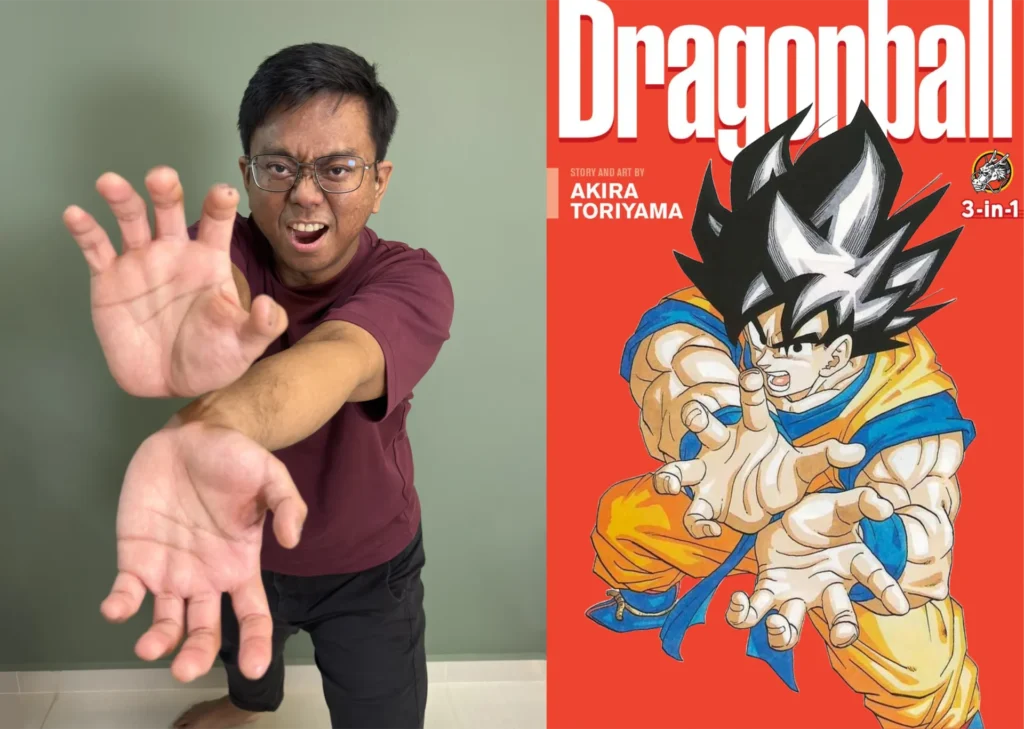
One of my heroes growing up was Goku, the main character from the Dragon Ball series of manga comics.
In the series, Goku is always depicted as incredibly strong, having the power to overcome any obstacle. He is also selfless, protecting his friends and the citizens of the earth.
But Goku’s most admirable trait is his ability to forgive the many enemies he faces. Even after defeating the bad guys, he will still treat them with kindness and respect. He even frequently offers to heal them and give them a chance to turn over a new leaf, because he sees the good in people.
What I choose to take away from this is that if we constantly focus on the past, it’s impossible to move on. I’ve chosen to forgive my bullies in school. And though I don’t know where they are right now, I hope they’ve learned to be better people as they’ve gotten older.

